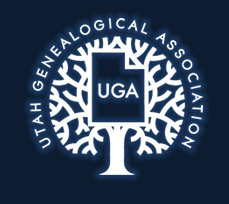Come to SLIG's Plenary session to find out!
Our 20th anniversary plenary speaker will be Elizabeth Shown Mills, CG, CGL, FASG. She will present "What's the Evidence?” on Monday, January 12th at 7:00 PM. The plenary is open to both SLIG students and the public - feel free to bring your travel buddy with you. Please RSVP through the registration system for planning purposes.
Whatever our genealogical problem--whatever the brick wall or whatever the identity crisis—the key to solving it lies in three simple words: What’s the Evidence? But, of course, we also have to learn how to answer that question in the most productive ways. In this year’s keynote address, Elizabeth Shown Mills will offer a variety of strategies to guide you through the process of developing your answers, whether you’re working with classic evidence such as land plats or the latest DNA tests.
About Elizabeth Shown Mills:
For three decades as a professional genealogist and historian, Elizabeth Shown Mills has specialized in developing innovative research strategies and principles that have helped genealogy achieve recognition as an academic discipline as well as a professional career and a meaningful hobby.
In 1986, Elizabeth launched the groundbreaking Advanced Research Methodology track at the Samford University Institute of Genealogy and Historical Research. Over the next quarter-century that track would train many of today’s leading genealogists, and many of the principles developed there are today in common usage in our field—from the FAN Principle to the Evidence Analysis Process Map. In 1987, she assumed editorship of the peer-reviewed National Genealogical Society Quarterly, building it into the field’s premier “teaching journal” across her 16-year tenure. In 2001, as co-writer and editor, she released the now-standard textbook, Professional Genealogy: A Manual for Researchers, Writers, Editors, Lecturers, and Librarians.
In 2007, Elizabeth published the definitive guide to sources and citation, Evidence Explained—winning Library Journal’s coveted “Best Reference 2007” designation. Subsequently, she served on the team of academics and professional genealogists who developed the curriculum for Boston University’s Professional Certificate in Genealogical Research. At her website, EvidenceExplained.com, she continues to teach through her blog QuickTips, through periodic QuickLessons that focus on research methodology, and through a trio of public forums for evidence analysis, citation, and record usage.
In between these ventures, Elizabeth has authored nearly a thousand articles that have been published not only in magazines and newspapers but also peer-reviewed journals in the fields of genealogy, history, literature, and sociology. Her dozen other books range from translated colonial records to the historic novel Isle of Canes and the new expanded edition of the now-classic university-press monograph, The Forgotten People: Cane River’s Creoles of Color.
Elizabeth well-knows the power of evidence, when carefully used, and regularly shares her expertise with live and media audiences internationally.



















